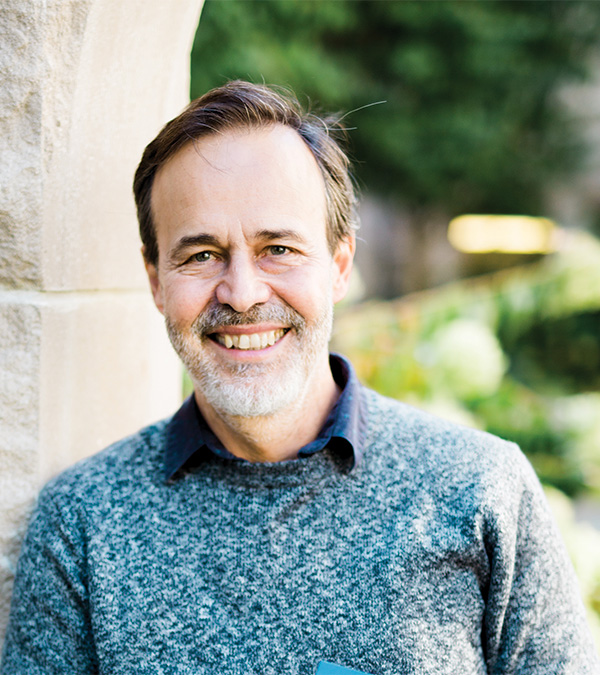Awards
- Tyler Prize - 2025
- National Academies - 2022
- National Academy of Sciences
- National Academies - 2020
- American Academy of Arts and Sciences
- Bicentennial Medal - 2020
- Distinguished Professor - 2019

Eduardo Brondizio has been a professor at IU since 1998, having served as chair of the Department of Anthropology, director of the Anthropological Center for Training and Research on Global Environmental Change, chair of the advisory council of the Ostrom Workshop, and currently, as director of the Center for Analysis of Social-Ecological Landscapes. An IU alum (1991-1996), before coming to the United States, Brondizio coordinated the first national assessment of the distribution of the Brazilian Atlantic Forest, an effort that continues to date in Brazil. He holds collaborating professorship positions at the University of Campinas and at the National Space Research Institute in Brazil and has held visiting positions at the the Institut d'études avancées-Paris, College de France, Chair Antonio Nariño at the Institut des Hautes Etudes de l'Amérique Latine at Paris 3-Sorbonne, the Swedish University of Agricultural Sciences at Uppsala; and at the Research Institute for Humanities and Nature in Kyoto, Japan.
Professor Brondizio's work focuses on the study of human-environmental interactions and social-environmental change in the Amazon, where he has been dedicated to field research among small-scale farmers and urban residents for 30 years. His work local and regional research is closely linked to global issues, being at the forefront of current discussions about climate change, biodiversity, sustainability, institutions, and governance. Brondizio pioneered the integration of ethnographic methods, surveys, and remote sensing in anthropological research and is known as "a leading authority" on multi-scalar analysis of social ecological systems. His work has contributed to understand the mechanisms connecting household decisions, institutional arrangements, and regional landscape change, rural-urban social networks and urbanization, interactions between global commodity chains and the livelihood of small-farmers, and climate change impacts on rural and urban populations. A "Renaissance scholar," his work is noted for its interdisciplinary impact across the social and natural sciences, including anthropology, geography, environmental science, land change science, Latin American studies, small-scale agriculture and agroforestry systems, local and indigenous knowledge, and geospatial sciences; and for its relevance to policy including conservation, restoration forestry, environmental justice, climate change impacts in the Amazon. His "novel and innovative" exploration of the interconnectedness of urban and rural communities has had "a tremendous influence globally," "inspiring at least a generation of students and researchers." His "singularly important" publications are "essential resources for understanding regional landscape change." His work on the açaí palm is "the most authoritative analysis of the açaí production system, its globalization, and implication for local producers." "I cannot think of another anthropologist today whose work is simultaneously so substantial and yet also so committed to putting that research to work." Among current projects, Brondizio is leading an international research network examining the contributions of individual and collective action to forest conservation and water protection in the Amazon and future scenarios for the region.
Brondizio has published over 200 articles, book chapters, and other manuscripts and has received over $8 million in grant funding, from the National Science Foundation, NASA, NIH, and other agencies. His work has been cited over 12,000 times and his h-index is 50, and his i10 index is 107, numbers at the very top of the distribution in the social sciences. Brondizio has been awarded the Mary W. Klinger Book Award by the Society for Economic Botany for his book The Amazonian Caboclo and the Açaí Palm: Forest Farmers in the Global Market, the Zayed International Prize for the Environment, and numerous fellowship awards. He has served on numerous international scientific boards in the Americas, Europe, and Asia, and contributed leading roles in international global environmental change and sustainability research initiatives, including the science committees of the International Geosphere Biosphere Program and Future Earth, UNESCO Steering Committee on Sustainability Sciences, Co-Chair of the International Review Panel for the Japanese national assessment of Satoyama and Satoumi (the rural and coastal areas of Japan). Brondizio is currently the co-chair of the United Nation's IPBES Global Assessment of Biodiversity and Ecosystem Services, the most comprehensive assessment to date of biodiversity, ecosystems and their contributions to society.
Brondizio received the IU Bicentennial Medal in September 2020 in recognition of his distinguished contributions to Indiana University.